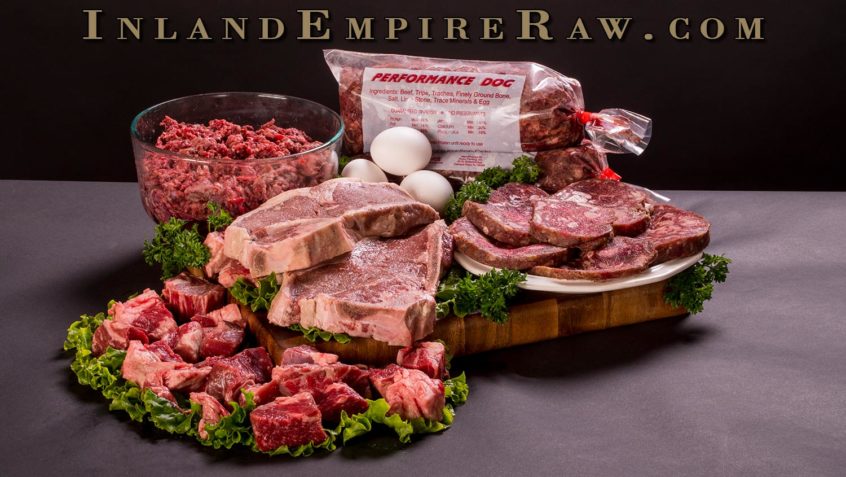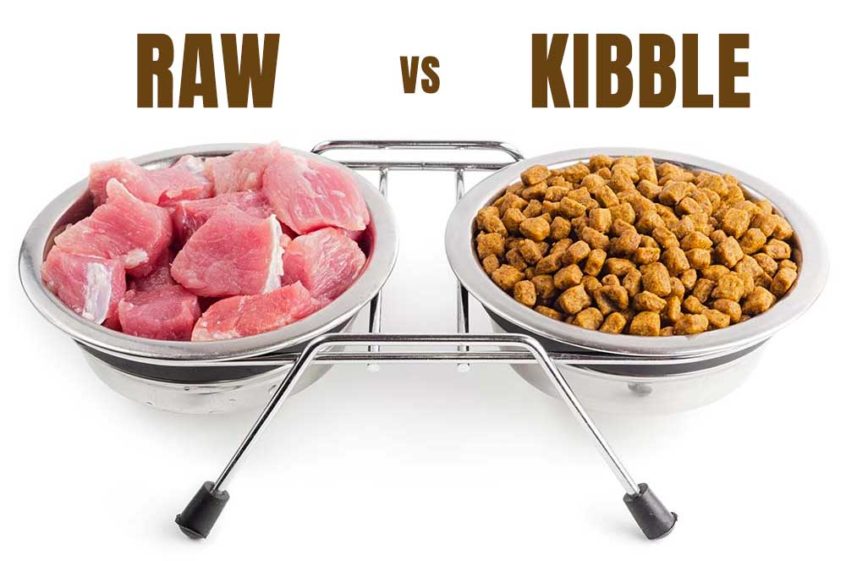Chapter 3: Kibble Is Made For People With Wallets, Not Dogs
Reprinted from: http://www.dogsnaturallymagazine.com Hold on there. How did we get from “dogs are undeniably carnivores” to “keep on feeding them a grain based diet” in the same paragraph? What just happened there? Diabetes, a condition where the body is unable to properly metabolize glucose from carbohydrates, is the most common endocrine disease affecting dogs today and its prevalence is growing every … Read More
Chapter 2: …But Not To Vets
Reprinted from: http://www.dogsnaturallymagazine.com Hold on there. How did we get from “dogs are undeniably carnivores” to “keep on feeding them a grain based diet” in the same paragraph? What just happened there? Diabetes, a condition where the body is unable to properly metabolize glucose from carbohydrates, is the most common endocrine disease affecting dogs today and its prevalence is growing every … Read More
Give Them Meat: Why Are Vets Resistant To Raw Dog Food?
Reprinted from: http://www.dogsnaturallymagazine.com (NOTE: We talk about feeding raw meat a lot! There are so many benefits to feeding a raw diet that it’s impossible to list them all here. Click the image below to get our free Introduction To Raw Feeding Video Guide and get started feeding raw!) At a Waltham Nutritional Sciences Symposium, researcher Professor Wouter Hendriks presented more evidence … Read More
Chapter 5: Kick That Kibble to the Curb!
I recommend pet parents ditch dry food entirely and instead feed a nutritionally balanced, species-appropriate diet, which means food containing high-quality animal protein, moisture, healthy fats and fiber, with low to no starch content. A nutritionally balanced raw or gently cooked homemade diet is the top choice for pets, but you should only attempt this if you’re committed to doing it … Read More
Chapter 4: Additional Problems With Feeding Pets Kibble
Aside from poor-quality meats, byproducts and synthetic vitamins and minerals, most commercial dry pet foods are based on high-glycemic, genetically modified (GM) corn, wheat, rice or potato — grains and starches that have no place in your pet’s diet and create metabolically stressful insulin, glucagon and cortisol spikes throughout the day. In fact, many grain-free dry foods have a higher glycemic … Read More
Chapter 3: Why I Almost Never Recommend Dry Pet Food
While most kibble is formulated to meet the basic nutritional requirements of dogs and cats, it certainly doesn’t provide optimal nourishment for the long haul. I have several issues with dry pet food, but let’s start with the quality of the raw ingredients. Rendering plants create meat and bone meal from a variety of dubious sources, for example, parts of … Read More
Chapter 2: Daily Brushing Is the Best Way to Keep Your Pet’s Teeth Clean
With a gentle hand, patience and persistence, most pet parents can teach their dog or cat to submit to daily tooth brushing, which is the ideal way to insure tartar doesn’t form on tooth surfaces. One of the secrets to successful tooth brushing is to progress slowly and gently, allowing your pet to adapt at his own pace. Start with your finger … Read More
Why I Almost Never Recommend This Popular Go-To Food
Reprinted from: http://www.mercola.com Despite the fact that an increasing number of pet owners are becoming better informed about nutritionally balanced, species-appropriate diets for dogs and cats, sadly, it seems there’s still an awful lot of kibble being sold. According to a Packaged Facts survey conducted earlier in the year, pet owners generally believe dry food is: 1) healthier and 2) better for pets’ teeth.1 Honestly, … Read More
What is a species appropriate diet for a canine?
Reprinted from: http://www.mercola.com A good place to start a discussion of our carnivorous pets is to go back to the roots of the dog and the cat prior to domestication. The domestic dog, whose taxonomic name is Canis lupus familiaris, is a domesticated form of the gray wolf, which is a member of the Canidae family of the order Carnivora. Most … Read More




